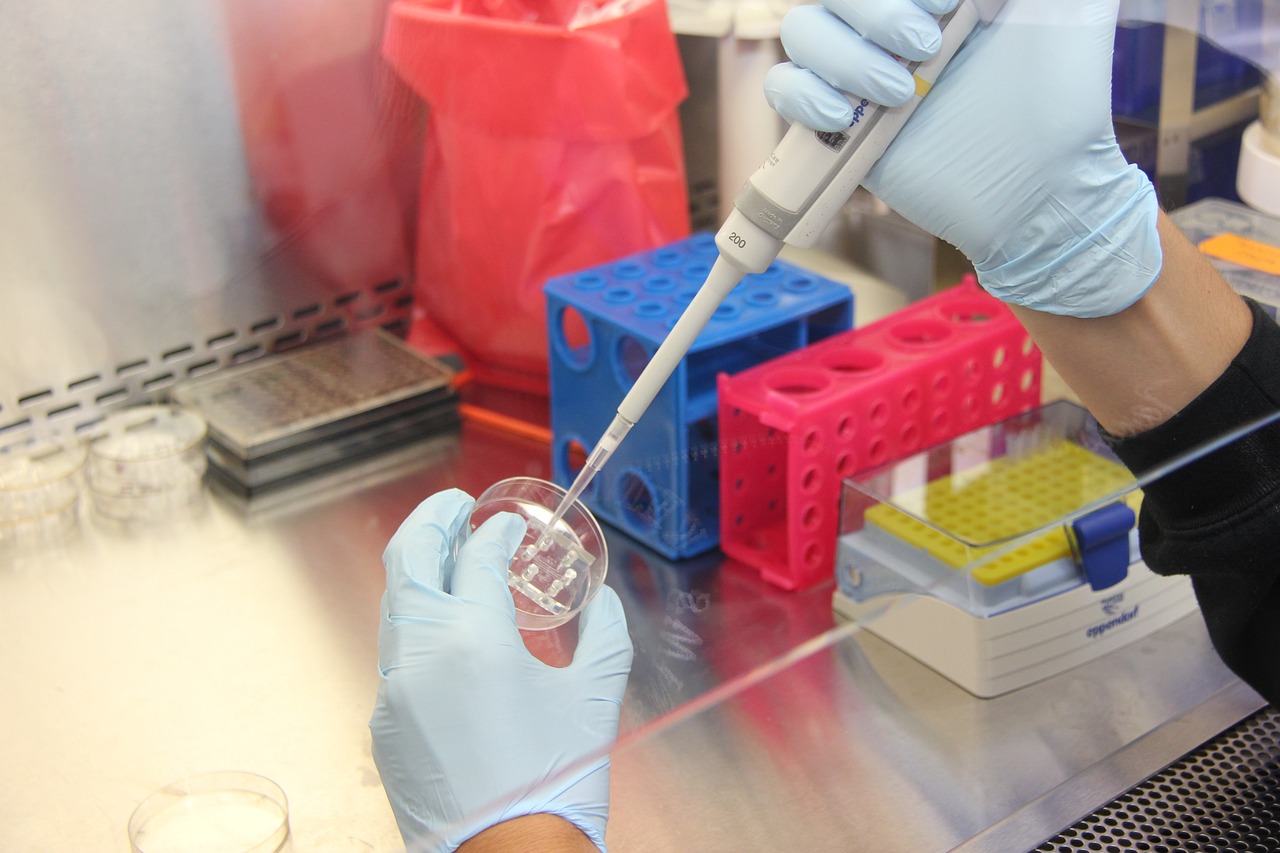Can Science and Philosophy Coexist Peacefully?
In the grand tapestry of human understanding, the threads of science and philosophy are woven together in ways that are both intricate and fascinating. At first glance, these two domains may seem like distant cousins, each with its own unique approach to unraveling the mysteries of existence. Science, with its focus on empirical evidence and experimentation, often appears to clash with philosophy's abstract reasoning and speculative nature. However, the question remains: can these two fields coexist in harmony, contributing to our quest for knowledge and understanding?
To explore this relationship, we must first recognize that both science and philosophy share a fundamental goal: the pursuit of truth. Whether it's through the lens of a microscope or the contemplation of ethical dilemmas, both disciplines aim to answer profound questions about our universe and our place within it. They may differ in their methodologies and objectives, but their ultimate aspirations often overlap in surprising ways.
Imagine science as a diligent detective, meticulously gathering clues from the physical world to solve the mysteries of nature. On the other hand, think of philosophy as a wise sage, pondering the implications of those discoveries and asking the deeper questions that science may not address. Together, they form a dynamic duo, each complementing the other and enriching our understanding of reality.
As we delve deeper into their historical relationship, we find a rich tapestry of interaction characterized by collaboration and conflict. From the ancient Greeks, who laid the groundwork for both scientific inquiry and philosophical thought, to the Enlightenment thinkers who championed reason and empirical observation, the dialogue between science and philosophy has evolved over centuries. This ongoing conversation has not only shaped the development of each field but has also illuminated the ways in which they can coexist and thrive together.
In the sections that follow, we will examine the defining characteristics of science and philosophy, explore their methodological differences, and identify common ground where they intersect. We will also engage with contemporary debates that highlight the tensions and synergies between these two domains, ultimately speculating on their future relationship. Through this exploration, we aim to uncover the potential for a peaceful coexistence that enriches our understanding of the world around us.
Throughout history, science and philosophy have been intertwined in a complex dance of influence and inspiration. From the early philosophers like Aristotle, who made significant contributions to both fields, to modern thinkers such as Albert Einstein and Bertrand Russell, the dialogue between these disciplines has been vibrant and transformative. Each era has brought forth key figures and movements that have shaped the development of scientific thought and philosophical inquiry.
For instance, during the Scientific Revolution in the 16th and 17th centuries, the emphasis on empirical observation and experimentation led to groundbreaking discoveries that challenged traditional philosophical views. This period marked a significant shift in how knowledge was perceived, with figures like Galileo Galilei and Isaac Newton paving the way for a more scientific approach to understanding the universe. Yet, even amidst this revolution, philosophers like René Descartes sought to reconcile these new scientific insights with established philosophical frameworks, demonstrating that the dialogue between the two fields was not only possible but essential.
As we move into the modern era, the relationship continues to evolve. The rise of scientific disciplines such as psychology and cognitive science has sparked philosophical debates about the nature of consciousness and free will. Similarly, advancements in technology and ethics have raised questions that require both scientific and philosophical perspectives to address. This ongoing interplay between science and philosophy highlights the potential for collaboration and mutual enrichment, suggesting that they can indeed coexist peacefully in the pursuit of knowledge.
To better understand how science and philosophy can coexist, we must first define what each field entails. Science is primarily concerned with the natural world and seeks to explain phenomena through empirical evidence, experimentation, and observation. It is a discipline grounded in the scientific method, which involves forming hypotheses, conducting experiments, and drawing conclusions based on measurable data.
In contrast, philosophy delves into the realm of ideas, ethics, and abstract reasoning. It seeks to answer questions that often transcend empirical observation, such as the nature of existence, the meaning of life, and the foundation of morality. Philosophers engage in critical thinking and logical analysis, exploring concepts that may not be directly observable or quantifiable.
Despite these differences, the two fields often intersect in meaningful ways. For example, ethical considerations in scientific research—such as the implications of genetic engineering or artificial intelligence—require philosophical inquiry to navigate the moral landscape. This interplay demonstrates that while science and philosophy may have distinct methodologies, they share a common goal: to deepen our understanding of the world and our place within it.
- Can science answer all philosophical questions? No, while science provides valuable insights, it cannot address every philosophical inquiry, especially those concerning ethics and meaning.
- Is philosophy necessary for scientific progress? Yes, philosophy helps frame scientific questions and ethical considerations, guiding the responsible application of scientific knowledge.
- How can science and philosophy work together? By fostering interdisciplinary dialogue, scientists and philosophers can collaborate to tackle complex issues that require both empirical and ethical perspectives.

The Historical Relationship
The relationship between science and philosophy has been a complex and evolving narrative throughout history. At their roots, both disciplines seek to understand the world around us, yet they have often approached this quest from different angles. In ancient times, thinkers like Aristotle and Plato laid the groundwork for both philosophical inquiry and scientific exploration. Aristotle, for instance, is often hailed as the father of empirical science due to his method of observation and classification of the natural world, while Plato emphasized the importance of ideal forms and abstract reasoning.
As we moved into the Middle Ages, the dialogue between science and philosophy continued to flourish, albeit under the influence of religious thought. Scholars like Thomas Aquinas sought to reconcile faith with reason, arguing that both science and philosophy could coexist under the umbrella of divine truth. This period highlighted the philosophical underpinnings of scientific inquiry, as many early scientists were also philosophers who pondered the nature of existence and knowledge.
The Renaissance marked a significant turning point in this relationship. With figures like Galileo Galilei and Isaac Newton, science began to emerge as a distinct discipline. Galileo's use of the telescope not only revolutionized our understanding of the cosmos but also sparked philosophical debates about perception and reality. Newton's laws of motion and universal gravitation provided a mathematical framework that further separated scientific inquiry from philosophical speculation. This period can be viewed as a gradual shift where empirical evidence started to take precedence over abstract thought.
Fast forward to the 19th century, and we see the rise of positivism, a philosophical stance that advocated for the primacy of scientific knowledge derived from observable phenomena. Thinkers like Auguste Comte argued that society should be organized based on scientific principles rather than metaphysical beliefs. This era also saw the birth of Darwinian evolution, which not only transformed biological sciences but also raised profound philosophical questions about the nature of humanity, morality, and existence itself.
In the 20th century, the relationship between science and philosophy took on new dimensions with the advent of quantum mechanics and relativity, which challenged our classical understanding of reality. Philosophers like W.V.O. Quine and Thomas Kuhn began to explore the implications of scientific theories on our understanding of knowledge and truth. Kuhn's concept of paradigm shifts illustrated how scientific revolutions could reshape philosophical thought, suggesting that the two fields were not merely parallel tracks but rather intertwined paths of inquiry.
Today, the historical relationship between science and philosophy is characterized by a dynamic interplay. As we navigate contemporary issues such as artificial intelligence and genetic engineering, the philosophical implications of scientific advancements become increasingly significant. The ongoing dialogue between these two fields is essential for a comprehensive understanding of the challenges and opportunities that lie ahead. In essence, the history of science and philosophy is a testament to humanity's relentless pursuit of knowledge, demonstrating that while their methods may differ, their ultimate goal remains the same: to uncover the mysteries of our existence.

Defining Science and Philosophy
To truly appreciate the relationship between science and philosophy, it's essential to first define each discipline and understand their unique characteristics. Science is often seen as the systematic study of the natural world, relying on empirical evidence and experimentation to draw conclusions. It seeks to answer questions about how things work, employing methods that are observable and measurable. In contrast, philosophy delves into the abstract, focusing on the fundamental nature of knowledge, reality, and existence. It asks questions like why things are the way they are and encourages critical thinking and reasoning to explore these profound inquiries.
At their core, both science and philosophy aim to enhance our understanding of the universe, but they do so through different lenses. Science is grounded in the tangible, while philosophy often navigates the intangible. This distinction can be summarized in the following table:
| Aspect | Science | Philosophy |
|---|---|---|
| Methodology | Empirical evidence and experimentation | Abstract reasoning and critical thinking |
| Objective | Understanding the natural world | Exploring fundamental questions of existence |
| Types of Questions | How? What? When? | Why? What if? Should? |
This table illustrates the distinct paths that science and philosophy take in their quest for knowledge. However, despite their differences, they often intersect in meaningful ways. For instance, while science provides the data, philosophy can help interpret that data, asking deeper questions about the implications of scientific findings. This interplay is crucial, especially in areas where ethical considerations arise from scientific advancements.
Moreover, the questions posed by philosophy can sometimes lead to scientific inquiries. For example, philosophical discussions about the nature of consciousness can inspire scientific research into brain function and cognition. Thus, while science and philosophy operate in different realms, they are not mutually exclusive; rather, they can be seen as complementary forces in our pursuit of understanding.
In essence, defining science and philosophy reveals that while they may approach knowledge from different angles, both are essential to the broader tapestry of human understanding. This relationship invites us to consider not just what we know, but also why it matters and how we can apply this knowledge responsibly in our lives.

Methodological Differences
When we dive into the world of science and philosophy, one of the first things that strikes us is their . These differences are not just minor quirks; they shape the very essence of how each discipline approaches the quest for knowledge. While science is often viewed as a systematic and empirical endeavor, philosophy embraces a more abstract and theoretical framework. So, how do these methodologies differ, and what does it mean for our understanding of the world?
At the heart of science lies empiricism, which emphasizes observation and experimentation. Scientists seek to understand the universe through direct evidence—think of it as a detective gathering clues to solve a mystery. They formulate hypotheses, conduct experiments, and analyze data to draw conclusions. This process is crucial because it allows for replicability and falsifiability, two cornerstones of scientific inquiry. For instance, when a scientist claims that a particular drug is effective, it’s not just based on a hunch; it’s backed by rigorous testing and statistical analysis.
On the flip side, philosophy often relies on rationalism, which values logical reasoning and critical thinking over empirical evidence. Philosophers ask questions that may not have clear-cut answers, such as “What is the nature of reality?” or “Do we have free will?” These inquiries require a different approach—one that involves deep reflection, debate, and the use of logical frameworks. A philosopher might argue that while science can tell us how things work, it often falls short of explaining why they exist in the first place. This is where the two fields can sometimes clash, as their methodologies lead them to different conclusions about the world.
To illustrate these methodological differences further, let’s consider a comparison table:
| Aspect | Science | Philosophy |
|---|---|---|
| Methodology | Empirical evidence through observation and experimentation | Logical reasoning and abstract thought |
| Type of Questions | How does this work? | Why does this exist? |
| Outcome | Testable and falsifiable theories | Conceptual frameworks and ethical considerations |
Despite these differences, it’s essential to recognize that science and philosophy are not mutually exclusive. In fact, they can complement each other beautifully. While science provides the tools to explore the physical world, philosophy offers the frameworks to ponder the implications of those discoveries. For example, when scientists uncover new technologies, philosophers can help us navigate the ethical dilemmas that arise from their use. This synergy between the two fields is vital for a holistic understanding of our existence.
In conclusion, the methodological differences between science and philosophy are profound and significant. They shape the questions we ask, the methods we use, and ultimately, the answers we find. Understanding these differences not only enhances our appreciation of each discipline but also opens the door for fruitful dialogue and collaboration. So, the next time you ponder a big question, consider whether a scientific or philosophical lens—or perhaps a combination of both—might offer the best insight.

Empiricism in Science
Empiricism is the backbone of scientific inquiry, serving as a guiding principle that emphasizes the importance of observation and experimentation in the pursuit of knowledge. At its core, empiricism posits that knowledge is primarily derived from sensory experience, making it a critical element in the scientific method. Scientists rely on empirical data to formulate hypotheses, conduct experiments, and ultimately draw conclusions about the natural world. This approach not only fosters a more reliable understanding of phenomena but also allows for the replication of results, which is essential for validating scientific claims.
One of the most fascinating aspects of empiricism is its ability to evolve alongside scientific advancements. For instance, consider how the development of technology has enhanced our capacity to observe and measure. With tools like microscopes and particle accelerators, scientists can now explore realms previously invisible to the naked eye. This has led to groundbreaking discoveries in fields such as quantum physics and genetics, where empirical evidence has challenged and reshaped our understanding of reality.
However, empiricism is not without its limitations. While it excels in providing concrete data, it sometimes falls short in addressing questions that are inherently abstract or philosophical in nature. For example, while we can measure the effects of a drug on a patient, understanding the subjective experience of pain or happiness requires a different, more qualitative approach. This is where the dialogue between science and philosophy becomes particularly intriguing, as each discipline brings its own strengths and weaknesses to the table.
To illustrate the empirical process, let’s break down the key steps involved in scientific inquiry:
| Step | Description |
|---|---|
| Observation | Identifying a phenomenon or problem that sparks curiosity. |
| Hypothesis | Formulating a testable statement based on initial observations. |
| Experimentation | Conducting experiments to gather data and test the hypothesis. |
| Analysis | Interpreting the data collected to draw conclusions. |
| Conclusion | Determining whether the hypothesis is supported or refuted. |
This systematic approach not only reinforces the reliability of scientific findings but also encourages a culture of skepticism and inquiry. Scientists are trained to question their own results and those of others, fostering a community that values critical thinking and evidence-based reasoning. In a world where misinformation can spread like wildfire, this empirical rigor is more important than ever.
In conclusion, empiricism in science serves as a powerful tool for unlocking the mysteries of the universe. By prioritizing observation and experimentation, scientists can build a robust framework for understanding the world around us. Yet, as we continue to push the boundaries of knowledge, it’s crucial to recognize the interplay between empirical inquiry and philosophical reflection. Together, they can lead to a deeper, more nuanced understanding of both the tangible and intangible aspects of our existence.
- What is empiricism? Empiricism is a philosophical stance that emphasizes knowledge derived from sensory experience, particularly through observation and experimentation.
- How does empiricism influence scientific research? Empiricism provides the foundation for the scientific method, guiding researchers to formulate hypotheses, conduct experiments, and analyze data to draw conclusions.
- Are there limitations to empiricism? Yes, while empiricism excels in providing concrete data, it may struggle with abstract or philosophical questions that require qualitative analysis.
- Can science and philosophy work together? Absolutely! Science and philosophy can complement each other, with philosophy offering critical insights into the ethical implications of scientific advancements.

Rationalism in Philosophy
Rationalism is a cornerstone of philosophical inquiry, emphasizing the power of reason as the primary source of knowledge. Unlike empiricism, which relies heavily on sensory experience, rationalism posits that certain truths can be discovered through intellectual deduction and logical reasoning. Think of it as the mind's ability to navigate the vast landscape of ideas without needing to step outside into the world. Just as a skilled navigator uses maps to chart a course, rationalists use logical frameworks to arrive at conclusions about existence, ethics, and the universe.
Key figures in rationalism, such as René Descartes, Baruch Spinoza, and Gottfried Wilhelm Leibniz, have shaped the discourse around this approach. Descartes famously declared, "Cogito, ergo sum" (I think, therefore I am), suggesting that the very act of thinking is proof of one's existence. This statement encapsulates the essence of rationalism: that knowledge is rooted in the self and can be derived through introspection and logical deduction. In contrast to the scientific method, which often requires observation and experimentation, rationalism invites individuals to explore abstract concepts and derive truths from within.
One of the most compelling aspects of rationalism is its insistence on the importance of critical thinking. In a world filled with information overload, the ability to analyze arguments and discern valid reasoning is more crucial than ever. Philosophers often engage in what is known as dialectical reasoning, where they systematically challenge and refine ideas through debate and discussion. This process not only clarifies thought but also fosters a deeper understanding of complex issues. For instance, when tackling questions about morality or the nature of reality, rationalists employ logical frameworks to dissect arguments, ensuring that their conclusions are well-founded and robust.
Moreover, rationalism has significant implications for various fields, including ethics, mathematics, and metaphysics. In ethics, for example, rationalists argue that moral truths can be discovered through reason rather than through cultural norms or emotional responses. This perspective leads to the development of ethical theories that prioritize logical consistency and universal principles. In mathematics, rationalism is evident in the belief that mathematical truths exist independently of human thought, waiting to be uncovered through intellectual inquiry.
Ultimately, rationalism in philosophy serves as a reminder that while empirical evidence is vital for scientific progress, the power of reason and logical thought remains indispensable in our quest for understanding. By harmonizing these two approaches, we can cultivate a more comprehensive worldview that appreciates the nuances of both science and philosophy. As we navigate the complexities of existence, the interplay between rationalism and empirical inquiry enriches our pursuit of knowledge, allowing us to explore profound questions about life, consciousness, and the universe.
- What is rationalism in philosophy? Rationalism is the philosophical view that reason is the primary source of knowledge, emphasizing logical deduction over sensory experience.
- Who are some key rationalist philosophers? Key figures include René Descartes, Baruch Spinoza, and Gottfried Wilhelm Leibniz, who contributed significantly to the development of rationalist thought.
- How does rationalism differ from empiricism? While rationalism relies on reason and logical deduction, empiricism emphasizes knowledge gained through sensory experience and observation.
- What role does critical thinking play in rationalism? Critical thinking is essential in rationalism, as it allows individuals to analyze arguments, challenge ideas, and arrive at well-founded conclusions.

Common Ground
When we dive into the fascinating world of science and philosophy, it might seem like we’re navigating two separate realms, each with its own rules and methodologies. However, if we look a little closer, we can find that these fields share a surprising amount of common ground. For instance, both science and philosophy are fundamentally driven by a quest for understanding—they seek to unravel the mysteries of existence, albeit through different lenses. This shared goal creates a unique opportunity for collaboration, where insights from one field can enrich the other.
One of the most prominent intersections between science and philosophy is in the realm of ethics. As scientific advancements propel us into uncharted territories—think genetic engineering or artificial intelligence—philosophy provides a framework to navigate the ethical dilemmas that arise. The questions posed by these advancements are not just about what we can do, but also about what we should do. Here are some key ethical questions that exemplify this intersection:
- What are the moral implications of cloning?
- How do we ensure fairness in AI algorithms?
- What responsibilities do scientists have towards their discoveries?
Another area where science and philosophy converge is in the exploration of scientific discoveries and their philosophical implications. For example, the discovery of quantum mechanics not only reshaped our understanding of physics but also challenged our notions of reality and causality. Philosophers have engaged deeply with these scientific concepts, asking questions about the nature of existence itself. This dialogue fosters a richer understanding of both fields, as philosophical inquiry can lead to new questions in science, and scientific discoveries can inspire new philosophical theories.
Furthermore, the philosophy of science emerges as a critical discipline that examines the foundations and implications of scientific practices. It prompts us to reflect on questions like: What constitutes scientific knowledge? How do we differentiate between science and pseudoscience? By analyzing the underlying principles of scientific inquiry, philosophy can help clarify how science operates and its limitations. This critical examination is essential, as it encourages scientists to remain vigilant about the assumptions and biases that may influence their work.
In conclusion, while science and philosophy may employ different methodologies and address different questions, they are not mutually exclusive. Instead, they can coexist harmoniously, enriching one another in the pursuit of knowledge. As we continue to confront complex issues in our rapidly evolving world, the collaboration between these two fields will be essential for fostering a more profound understanding of our universe and our place within it.
- Can science and philosophy really work together? Yes, they can complement each other, especially in areas like ethics and the philosophy of science.
- What role does ethics play in scientific advancements? Ethics helps guide the moral implications of scientific discoveries and advancements.
- How does philosophy influence scientific inquiry? Philosophy prompts critical thinking about the foundations and implications of scientific methods and findings.

Contemporary Debates
The relationship between science and philosophy is not just a historical curiosity; it is a vibrant and ongoing dialogue that shapes our understanding of the world today. In contemporary society, debates surrounding various topics illustrate the intricate dance between these two fields. Issues such as consciousness, free will, and the nature of reality are at the forefront, challenging our perceptions and pushing the boundaries of what we know. But how do science and philosophy engage in these discussions? Let's delve deeper.
One of the most captivating debates is the nature of consciousness. Scientists and philosophers alike grapple with questions like: What is consciousness? Is it merely a byproduct of brain activity, or does it exist beyond the physical realm? Neuroscience has made significant strides in understanding brain functions, yet the subjective experience of consciousness remains elusive. This is where philosophy steps in, urging us to consider the implications of scientific findings. For example, if consciousness is purely physical, what does that mean for our understanding of identity and self? This intersection of science and philosophy not only invites rigorous inquiry but also enriches our comprehension of human experience.
Another hot topic is free will. Do we truly have the ability to make choices, or are our decisions predetermined by biological and environmental factors? This question has profound implications for ethics and responsibility. From a scientific perspective, studies in psychology and neuroscience suggest that much of our behavior is influenced by unconscious processes. Yet, philosophers argue that the mere existence of these influences does not negate our capacity for free will. The debate continues, highlighting the need for a nuanced understanding that incorporates both scientific evidence and philosophical reasoning.
Moreover, the nature of reality itself is a battleground for both fields. Quantum mechanics, with its bizarre implications, challenges our traditional notions of what is real. Philosophers ponder the implications of quantum theory, asking questions such as: Does reality exist independently of our observation? This inquiry leads to fascinating discussions about the role of the observer in shaping reality, a concept that can be both perplexing and enlightening. Here, science provides the empirical framework, while philosophy offers the critical lens through which we can examine our assumptions and beliefs.
As we navigate these contemporary debates, it's essential to recognize the ethical dimensions that arise from scientific advancements. For instance, the rapid development of technologies such as genetic engineering and artificial intelligence raises significant ethical questions. How do we ensure that scientific progress aligns with our moral values? Philosophy plays a crucial role here, offering frameworks for ethical reasoning that can guide scientists in their work. By fostering a dialogue between science and philosophy, we can better navigate the complex landscape of modern ethical dilemmas.
In conclusion, the contemporary debates between science and philosophy are not merely academic exercises; they have real-world implications that affect how we live, think, and interact with one another. The synergy between these fields can lead to a more profound understanding of the human condition, encouraging us to explore questions that matter deeply to our existence. As we continue to unravel the mysteries of the universe, the collaboration between science and philosophy will undoubtedly illuminate paths toward greater knowledge and understanding.
- Can science and philosophy work together? Yes, they can complement each other by providing different perspectives on complex questions.
- What are some key topics where science and philosophy intersect? Topics like consciousness, free will, and ethics in scientific advancements are prime examples.
- Why is philosophy important in scientific discussions? Philosophy helps frame ethical considerations and deeper implications of scientific findings.

Science and Ethics
In the ever-evolving landscape of modern society, the intersection of science and ethics has become a hotbed of discussion, debate, and, at times, controversy. As scientific advancements propel us into uncharted territories—think genetic engineering, artificial intelligence, and biotechnology—the ethical implications of these innovations are more critical than ever. But what does it mean for science to operate within an ethical framework? Is it possible to pursue scientific discovery while ensuring that we respect moral boundaries? These questions are not just academic; they affect every one of us.
To illustrate the importance of ethics in science, consider the case of CRISPR technology, a revolutionary tool that allows for precise editing of DNA. While the potential benefits are astounding—curing genetic diseases, enhancing agricultural productivity, and even combating climate change—this technology also raises profound ethical dilemmas. For instance, should we edit the genes of embryos? What about the potential for creating "designer babies"? These questions reveal the delicate balance that must be struck between scientific innovation and ethical responsibility.
One of the primary roles of philosophy in this context is to provide a framework for evaluating these ethical dilemmas. Philosophers often engage in rigorous debates about the moral implications of scientific practices, guiding researchers and policymakers through the complexities of their decisions. For example, the principle of utilitarianism—which advocates for actions that maximize overall happiness—can be applied to assess whether the benefits of a scientific advancement outweigh its potential harms. In contrast, deontological ethics focuses on rules and duties, questioning whether certain scientific practices are inherently right or wrong, regardless of their outcomes.
Additionally, the ethical considerations surrounding science are not limited to the realm of human health. Environmental ethics has gained traction as scientists grapple with the impact of their work on the planet. Issues such as climate change, biodiversity loss, and pollution require a collaborative effort between scientists and ethicists to ensure that research contributes positively to the world we inhabit. The dialogue between these fields can lead to sustainable practices that benefit both humanity and the environment.
As we delve deeper into the relationship between science and ethics, it becomes evident that interdisciplinary collaboration is essential. Scientists must engage with ethicists, sociologists, and the public to navigate the murky waters of ethical decision-making. This collaborative approach not only enriches scientific inquiry but also fosters a more informed and engaged society.
In conclusion, the relationship between science and ethics is complex and multifaceted. As we continue to push the boundaries of what is possible, it is imperative that we do so with a keen awareness of the ethical implications. By fostering dialogue between these two fields, we can ensure that scientific advancements serve humanity while respecting moral principles. After all, science without ethics is like a ship without a rudder—directionless and potentially dangerous.
- What is the role of ethics in scientific research? Ethics guides scientists in making responsible decisions that consider the welfare of individuals and society.
- How can scientists ensure their work is ethical? By engaging with ethicists, adhering to established guidelines, and considering the societal implications of their research.
- What are some examples of ethical dilemmas in science? Genetic editing, artificial intelligence, and environmental impacts are a few areas where ethical considerations are critical.

Philosophy of Science
The is a fascinating field that delves into the underlying principles, methods, and implications of scientific practice. It serves as a bridge between the empirical world of science and the abstract realm of philosophical thought. By examining how science operates, philosophers seek to answer profound questions about the nature of knowledge itself. What does it mean to know something? How do we justify our beliefs in scientific theories? These questions are at the heart of the philosophy of science, and they invite us to reflect on the very foundations of our understanding.
At its core, the philosophy of science addresses several key themes, including:
- Scientific Methodology: How do scientists gather and analyze data? What constitutes valid evidence? Philosophers of science scrutinize the methods scientists use, evaluating their strengths and weaknesses.
- Scientific Realism vs. Anti-Realism: Is the universe as science describes it, or are scientific theories merely useful fictions? This debate challenges our perceptions of reality and the extent to which we can trust scientific models.
- Demarcation Problem: What distinguishes science from non-science? This question is crucial in an age where pseudoscience often masquerades as legitimate inquiry.
One of the most intriguing aspects of the philosophy of science is its ability to foster critical thinking. By encouraging scientists and philosophers alike to question assumptions and explore the implications of their work, this discipline cultivates a deeper understanding of both scientific inquiry and the philosophical questions that arise from it. For instance, when scientists make groundbreaking discoveries, such as the theory of relativity or quantum mechanics, philosophers step in to ponder the implications. What do these discoveries tell us about the nature of reality? How do they challenge our previous notions of time and space?
Moreover, the philosophy of science is not just an academic exercise; it has real-world implications. Consider how ethical considerations in scientific research—such as in genetic engineering or artificial intelligence—are informed by philosophical principles. Philosophers provide frameworks for evaluating the moral dimensions of scientific advancements, guiding society in making informed decisions about technology and its impact on humanity.
In summary, the philosophy of science is a dynamic and essential field that not only enhances our understanding of how science operates but also encourages a reflective approach to the implications of scientific knowledge. By engaging in this dialogue, we can better appreciate the complexity of the world around us and the role that both science and philosophy play in shaping our understanding of it.
- What is the main focus of the philosophy of science? The philosophy of science primarily focuses on the methods, foundations, and implications of scientific practice, exploring questions about knowledge and reality.
- How does philosophy influence scientific research? Philosophy provides ethical frameworks and critical thinking tools that help scientists navigate the moral implications of their work.
- Can science and philosophy coexist? Yes, science and philosophy can coexist harmoniously, each enriching the other through dialogue and collaborative inquiry.

The Future of Science and Philosophy
The relationship between science and philosophy is like a dance—sometimes in sync, sometimes stepping on each other’s toes. As we look ahead, it’s clear that their paths will continue to intertwine in fascinating ways. With rapid advancements in technology and our understanding of the universe, the questions that arise will demand both scientific inquiry and philosophical reflection. Imagine a world where breakthroughs in artificial intelligence not only enhance our capabilities but also challenge our ethical frameworks. How do we navigate such complexities? This is where the synergy between science and philosophy becomes crucial.
One of the most exciting prospects for the future is the potential for interdisciplinary collaboration. As scientists push the boundaries of what we know, philosophers will be there to question the implications of these discoveries. For instance, the exploration of consciousness through neuroscience raises profound philosophical questions about the nature of self and identity. This intersection could lead to a richer understanding of what it means to be human, as we grapple with ideas that were once relegated to the realm of metaphysics.
Furthermore, the advent of new technologies—such as genetic engineering and quantum computing—will undoubtedly stir debates that require both scientific rigor and philosophical insight. For instance, advancements in genetic editing, like CRISPR, bring forth questions about the ethics of "designing" humans. Should we play God? What are the long-term consequences of our choices? These are not just scientific questions; they are deeply philosophical ones that require thoughtful dialogue.
In this context, educational institutions have a pivotal role to play. By fostering environments where science and philosophy can coalesce, we prepare future generations for the challenges that lie ahead. Imagine curriculums that integrate scientific literacy with philosophical reasoning, equipping students to think critically about the implications of their work. This holistic approach not only enriches the individual but also society as a whole, encouraging a culture of inquiry and ethical responsibility.
Moreover, the rise of global challenges—such as climate change, public health crises, and social justice—demands a collaborative approach. Scientists can provide data and solutions, while philosophers can offer ethical frameworks to guide decision-making. Together, they can address questions like: What is our responsibility to future generations? How do we balance progress with sustainability? This partnership is essential for creating a future that is not only innovative but also just.
In conclusion, the future of science and philosophy is bright, filled with opportunities for collaboration and mutual enrichment. As we stand at the crossroads of discovery and ethical consideration, the dialogue between these two fields will be more important than ever. They are not adversaries but allies in the quest for knowledge and understanding. By embracing their differences and recognizing their shared goals, we can navigate the complexities of our world and pave the way for a more thoughtful, informed future.
- Can science and philosophy truly coexist? Yes, they can coexist and often complement each other, providing a more comprehensive understanding of complex issues.
- What role does philosophy play in scientific advancements? Philosophy helps frame ethical questions and implications of scientific discoveries, guiding responsible innovation.
- How can education bridge the gap between science and philosophy? By integrating both disciplines into curricula, students can learn to think critically and ethically about scientific advancements.
- What are some examples of issues requiring both scientific and philosophical perspectives? Issues like climate change, artificial intelligence ethics, and genetic engineering all benefit from a combined approach.
Frequently Asked Questions
- Can science and philosophy really work together?
Absolutely! While they approach questions differently, science and philosophy can complement each other beautifully. Science provides empirical data, while philosophy offers critical frameworks for interpreting that data. Together, they can lead to a more holistic understanding of complex issues.
- What are the main differences between science and philosophy?
Science is primarily concerned with observable phenomena and relies on empirical evidence and experimentation. Philosophy, on the other hand, delves into abstract reasoning and seeks to answer fundamental questions about existence, knowledge, and ethics. Both fields, though distinct, often overlap in their inquiries.
- How has the relationship between science and philosophy evolved over time?
Historically, science emerged from philosophy, with early philosophers laying the groundwork for scientific inquiry. Over the centuries, as science became more empirical, the two fields began to diverge. However, they continue to influence each other, especially in areas like ethics and the philosophy of science.
- What role does ethics play in scientific research?
Ethics is crucial in guiding scientific research, especially in sensitive areas like genetic engineering and artificial intelligence. Philosophical discussions help establish moral frameworks that ensure scientific advancements benefit society while minimizing harm. It’s a fascinating intersection where both fields must collaborate.
- Can philosophical questions influence scientific research?
Definitely! Philosophical inquiries about the nature of reality, consciousness, and free will can shape scientific research agendas. For instance, understanding the implications of consciousness can lead to new explorations in neuroscience, bridging the gap between the two disciplines.
- What is the philosophy of science?
The philosophy of science is a branch of philosophy that examines the foundations, methods, and implications of science. It addresses questions about scientific reasoning, the nature of scientific theories, and the ethical implications of scientific discoveries, fostering a deeper understanding of scientific practices.
- How might the future look for science and philosophy?
As both fields continue to evolve, their relationship is likely to deepen. Advancements in technology and science will prompt new philosophical questions, and philosophical insights may guide scientific practices. Interdisciplinary dialogue will be essential for addressing the complex challenges of the future.



















